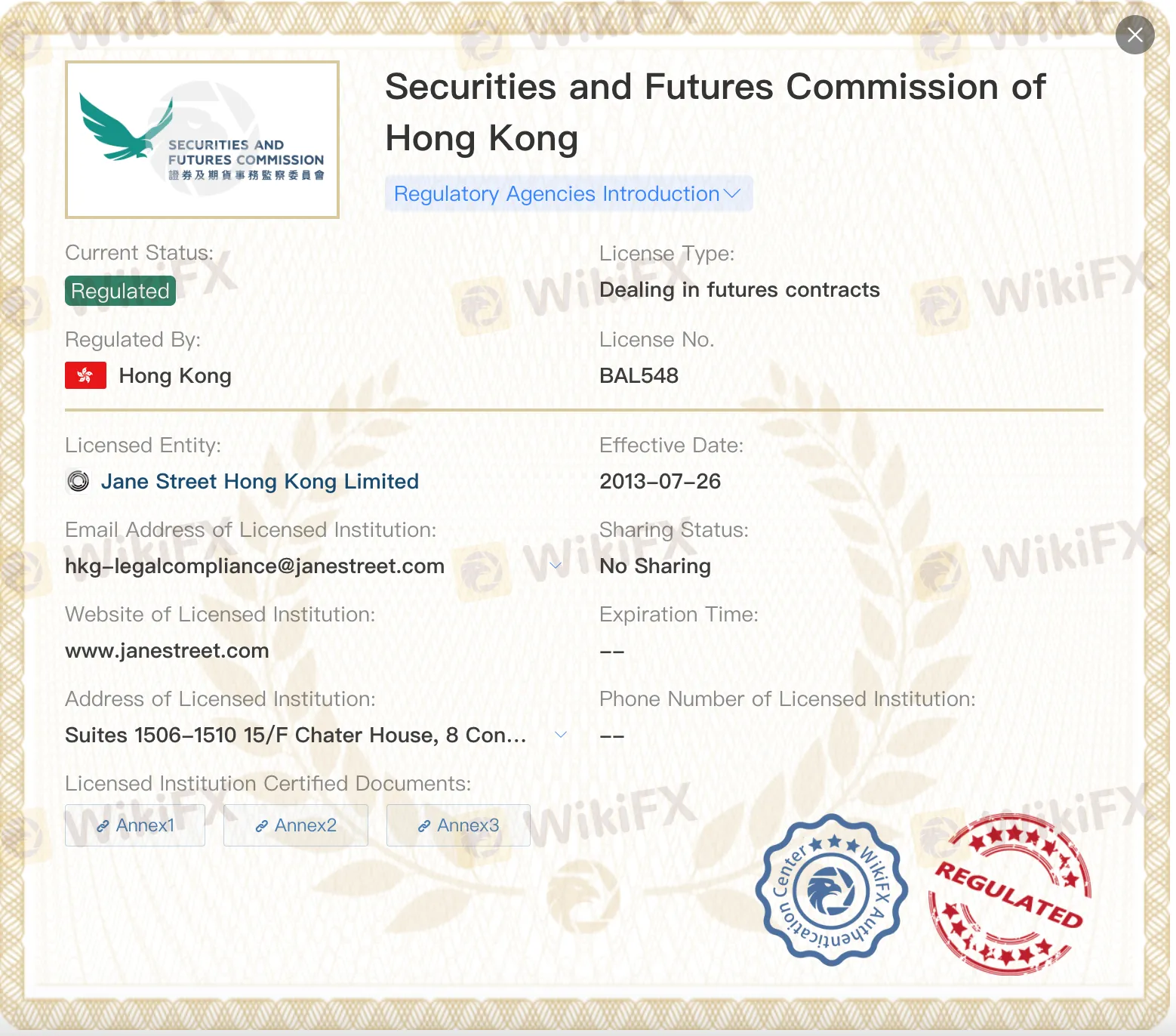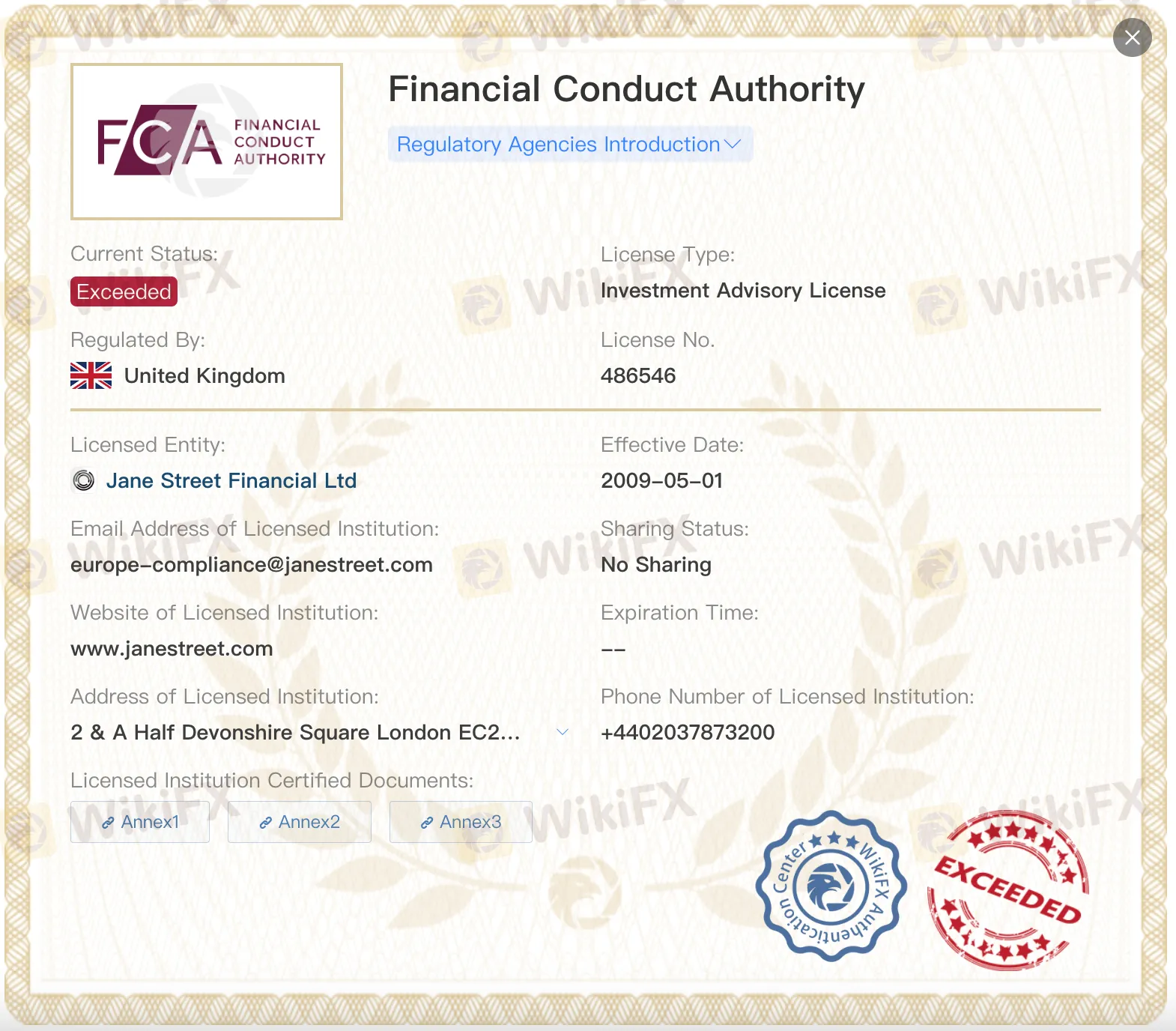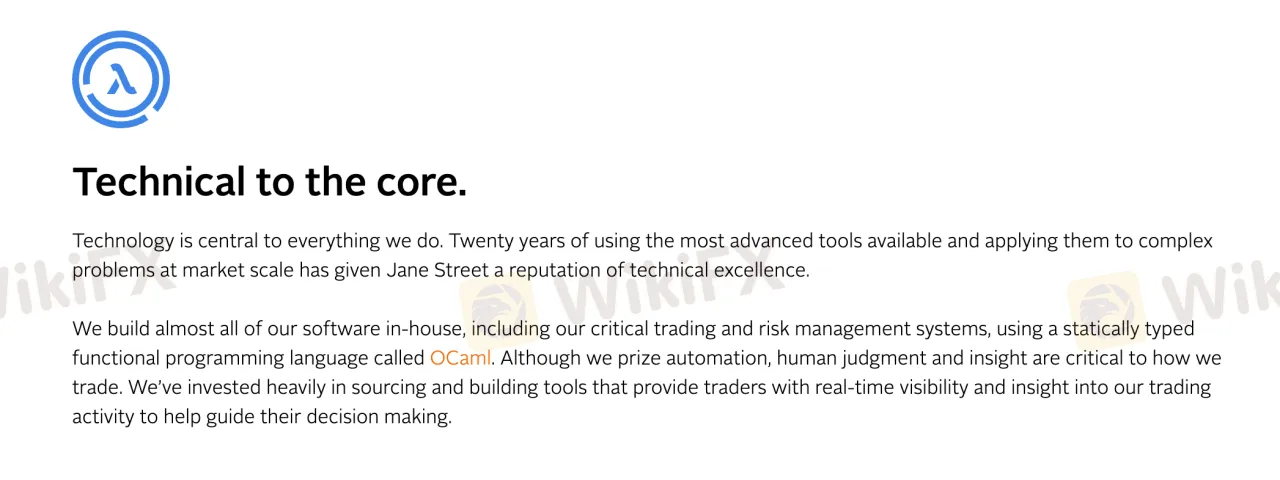公司简介
| JaneStreet 评论摘要 | |
| 成立时间 | 2000 |
| 注册国家/地区 | 美国 |
| 监管 | 在香港由SFC(许可证号BAL548)监管期货;在英国的FCA许可证(编号486546)目前标记为“已超过” |
| 产品和服务 | 做市商、ETF、债券、股票、期权、量化研究、技术解决方案 |
| 交易平台 | 内部交易系统、基于OCaml的软件 |
| 客户支持 | 纽约:+1 646 759 6000 |
| 伦敦:+44 (0)20 3787 3200 | |
| 香港:+852 3900 7300 | |
| 阿姆斯特丹:+31 (0)20 794 3100 | |
| 新加坡:+65 6393 6000 | |
| 媒体:media@janestreet.com | |
JaneStreet 信息
Jane Street是一家私人拥有的美国流动性提供商和量化交易企业,成立于2000年。该公司专注于期货市场技术创新、量化研究和交易所交易基金(ETF)。它不适用于零售交易,并且缺乏任何公共服务或平台,如MT4或MT5。

优点和缺点
| 优点 | 缺点 |
| 在香港由SFC监管 | 不适用于零售或个人投资者 |
| 在全球200多个电子交易场所运营 | 不支持MT4/MT5或传统交易账户 |
| 在量化策略和内部技术堆栈方面具有强大的专业知识 | 在英国的FCA许可证被标记为“已超过”(不活跃) |
JaneStreet 是否合法?
Jane Street在香港由证券期货事务监察委员会(SFC)监管,许可证号为BAL548,用于期货合约交易。在英国,它曾获得金融行为监管局(FCA)颁发的投资咨询服务许可证号486546,但目前状态为“已超过”,意味着不再有效。


产品和服务
Jane Street提供创新的技术服务、量化研究和交易。在200多个电子交易场所运营,是一家重要的全球流动性提供商,以其在机器学习驱动的量化策略、股票、债券、期权和ETF方面的实力而闻名。
| 类别 | 提供的产品/服务 |
| 交易 | 在200多个交易场所进行ETF、股票、债券、期权和其他资产类别的做市 |
| 量化研究 | 基于机器学习的模型开发、策略设计、大规模数据分析 |
| 技术 | 使用OCaml的内部软件和基础设施(例如交易、风险、分析工具) |
| 全球业务 | 在纽约、伦敦、香港、新加坡、阿姆斯特丹等地开展业务 |
| 合作 | 跨职能整合交易、研究和技术团队,解决市场问题 |

公司办公室
Jane Street在世界上一些最具活力的金融中心设有办事处,包括纽约、伦敦、香港、新加坡、阿姆斯特丹和芝加哥。

交易平台
| 交易平台 | 支持 | 可用设备 | 适合何种交易者 |
| 内部交易系统 | ✔ | 桌面 | 使用专有策略的机构交易者 |
| 基于OCaml的软件 | ✔ | 桌面 | 量化开发人员和技术驱动的交易团队 |
| MT4/MT5 | ❌ | – | - |








































